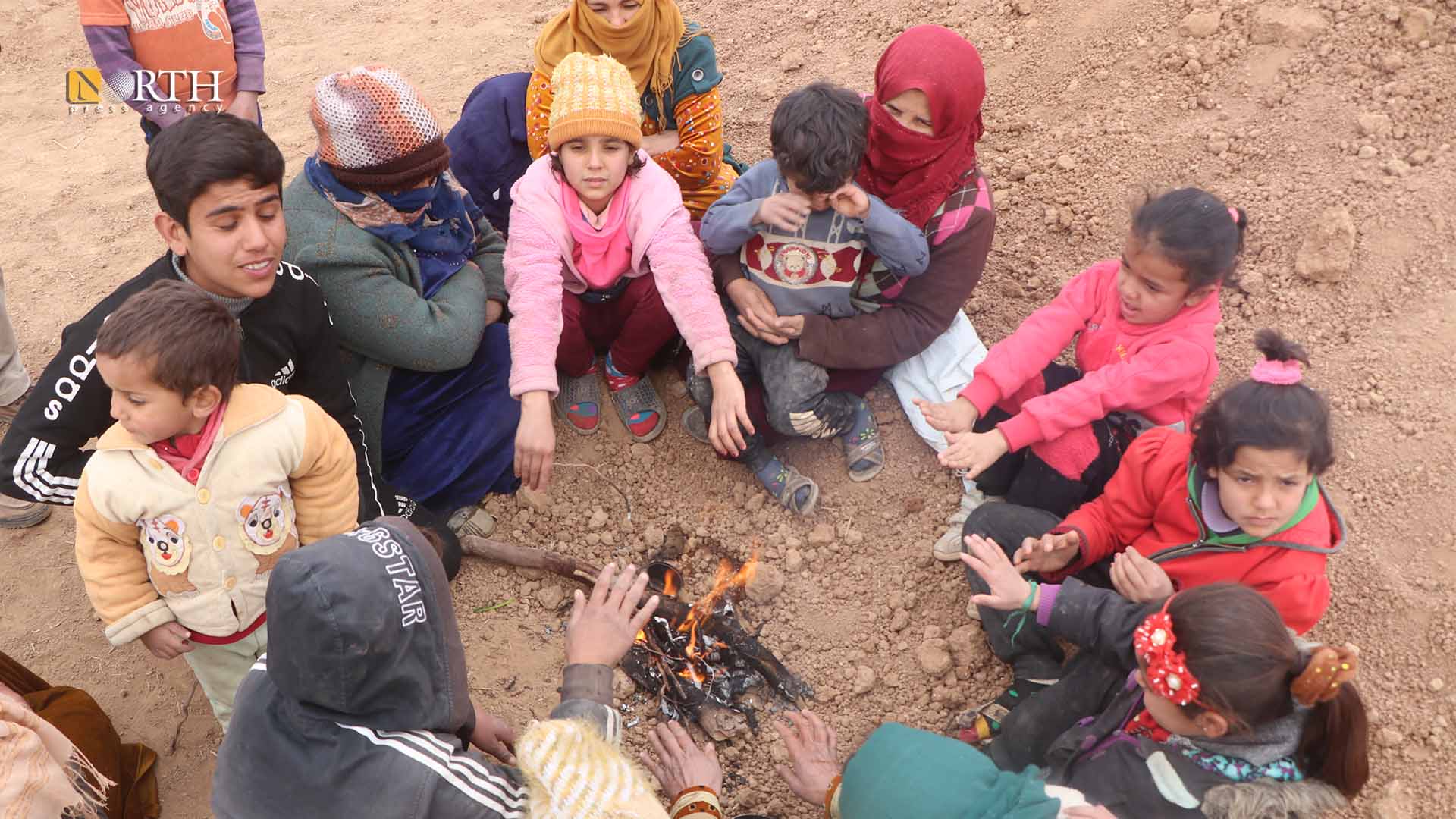Frequent Turkish offensive on NE Syria worsens IDPs situation
QAMISHLI, Syria (North Press) – The co-chair of the Directorate of Refugees and Displaced Persons Affairs in the Jazira region, northeast Syria, Firoshah Ramadan, said the frequent Turkish aggression on areas of the northern countryside of Hasakah caused the displacement of a thousand people from their homes.
So far we have received 104 displaced families in the Sere Kaniye and Nerwoz camps, and the Autonomous Administration of North and East Syria (AANES) has provided them with tents, heating facilities, mattresses, water tanks and bathrooms in an emergency manner, Ramadan told North Press.
Despite their promises to provide assistance to the IDPs, the international and local organizations have not provided any assistance yet, Ramadan added.
As part of a plan to receive hundreds of displaced families from the northern countryside of Hasakah, 63 displaced families were admitted to Sere Kaniye camp on the outskirts of the city of Hasakah during the past week, after it worked to expand it to an area of 65 acres.
“We received 63 displaced families whose homes were destroyed in the recent Turkish bombing of the towns of Zargan (Abu Rasin), Tel Tamr and the surrounding villages,” Yilmaz Ibrahim, co-chair of Sere Kaniye camp, told North Press.
IDPs told North Press that all the military points on the front line, whether they are for the military councils of the SDF, or the Syrian government forces, are known and clear, adding they are the victims of the indiscriminate bombing of the Turkish forces and armed factions, and wondering why villages and populated areas are bombed in this way.
International and local organizations have warned of the exacerbation of the displacement crisis in a region that suffers from an acute shortage of humanitarian access.
Displacement faced with blind eyes
Turkey invokes the bombing of villages and towns in the north and northwest of Hasakah under the pretext of the presence of SDF fighters, which in turn confirmed the withdrawal of its fighters from those areas and its commitment to the ceasefire agreement signed in October 2019.
The frequent offensive by Turkish forces and the Turkish-baked armed factions in December 2021, killed more than ten people and wounded more than 20 others, including women and children.
The bombing also caused damage to the vital facilities, public utilities and service institutions, and destroyed dozens of homes.
However, the new displacement wave in the region, amid the silence of the actors in the Syrian war regarding the Turkish attacks, threatens to exacerbate the humanitarian crisis.
The number of regular camps run by the AANES, in northeastern Syria, is 16 with a population of up to 150,000 people, in addition to dozens of squatter camps in the countryside of Raqqa, Deir ez-Zor, Tabqa and Manbij, all of which need humanitarian assistance.
No aid to NE Syria camps
Ibrahim indicated that the families displaced to the camp have not yet received any assistance from international or local organizations, only AANES is providing aid to them.
Recently, the Autonomous Administration have set large tents to receive the IDPs from the northern countryside of Hasakah city and place them in Sere Kaniye camp, located on the eastern edge of the city. It also works to expand the camp to house the new IDPs.
However, the expansion plan is about to stop, waiting for aid and support by local and international organizations, which did not take the initiative to provide assistance, since the capabilities of the Autonomous Administration is limited, according to the camp management.
The Turkish offensive on the regions of Sere Kaniye and Tel Abyad, accompanied by the Turkish-backed armed Syrian factions, caused the displacement of about 300,000 civilians, according to the statistics of the Autonomous Administration of North and East Syria (AANES).
Closed border crossing
In addition, the regions of northeastern Syria have been suffering from a severe lack of aid access for more than two years, with the closure of al-Ya’rubiyah (Tel Kochar) crossing with Iraqi territory, due to Russian-Chinese veto.
Activists and workers in local organizations estimate that the closure of al-Ya’rubiyah humanitarian crossing has affected about two million displaced people and low-income residents in northern and eastern Syria, as well as it forced about 40 local and international organizations to suspend their work in the area.
The new wave of displacement threatens to exacerbate the humanitarian crisis in northeastern Syria, with the continued closure of Semalka (Faysh Khabur) border crossing between the Autonomous Administration areas and the Kurdistan Region of Iraq (KRG).
The crossing, which was closed by KRG on December 15, 2021, is the main lifeline for the entry of daily needs into the AANES’s area.
The management of the Faysh Khabur border crossing in the Kurdistan Region of Iraq suspended the movement of transit and trade with the Autonomous Administration areas in northeast Syria.
The crossing is still closed, despite all efforts of the political parties in northeastern Syria, the intervention of the Global Coalition and the appeals of local organizations to reopen the it.

